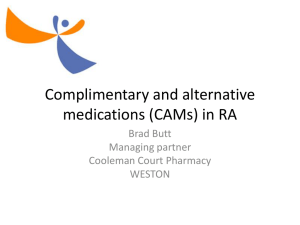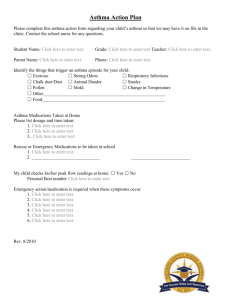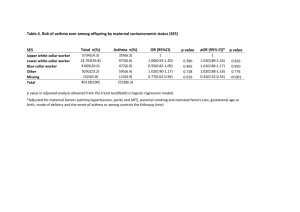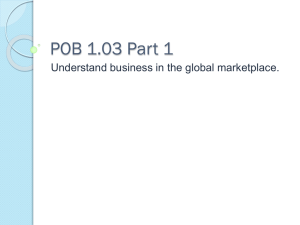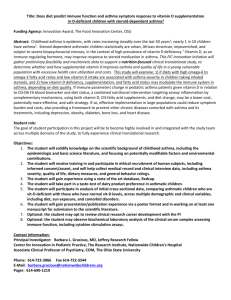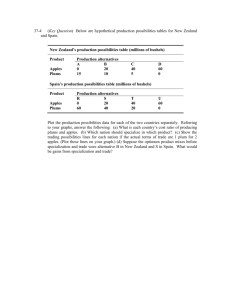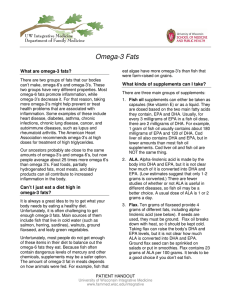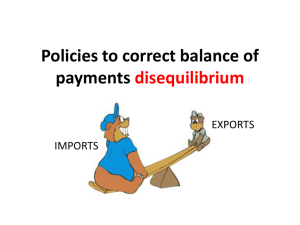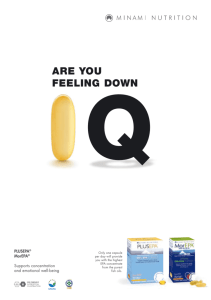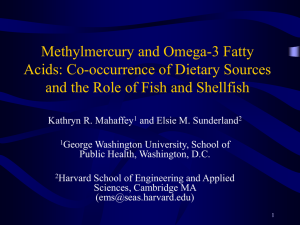054 summer sampler
advertisement
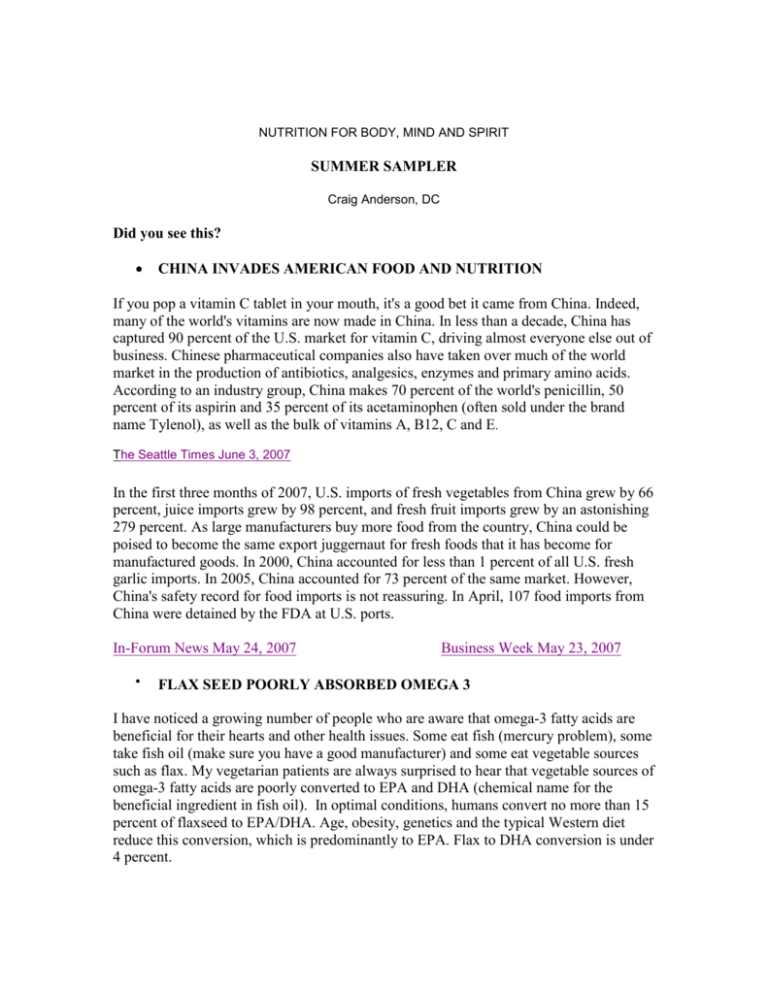
NUTRITION FOR BODY, MIND AND SPIRIT SUMMER SAMPLER Craig Anderson, DC Did you see this? CHINA INVADES AMERICAN FOOD AND NUTRITION If you pop a vitamin C tablet in your mouth, it's a good bet it came from China. Indeed, many of the world's vitamins are now made in China. In less than a decade, China has captured 90 percent of the U.S. market for vitamin C, driving almost everyone else out of business. Chinese pharmaceutical companies also have taken over much of the world market in the production of antibiotics, analgesics, enzymes and primary amino acids. According to an industry group, China makes 70 percent of the world's penicillin, 50 percent of its aspirin and 35 percent of its acetaminophen (often sold under the brand name Tylenol), as well as the bulk of vitamins A, B12, C and E. The Seattle Times June 3, 2007 In the first three months of 2007, U.S. imports of fresh vegetables from China grew by 66 percent, juice imports grew by 98 percent, and fresh fruit imports grew by an astonishing 279 percent. As large manufacturers buy more food from the country, China could be poised to become the same export juggernaut for fresh foods that it has become for manufactured goods. In 2000, China accounted for less than 1 percent of all U.S. fresh garlic imports. In 2005, China accounted for 73 percent of the same market. However, China's safety record for food imports is not reassuring. In April, 107 food imports from China were detained by the FDA at U.S. ports. In-Forum News May 24, 2007 Business Week May 23, 2007 FLAX SEED POORLY ABSORBED OMEGA 3 I have noticed a growing number of people who are aware that omega-3 fatty acids are beneficial for their hearts and other health issues. Some eat fish (mercury problem), some take fish oil (make sure you have a good manufacturer) and some eat vegetable sources such as flax. My vegetarian patients are always surprised to hear that vegetable sources of omega-3 fatty acids are poorly converted to EPA and DHA (chemical name for the beneficial ingredient in fish oil). In optimal conditions, humans convert no more than 15 percent of flaxseed to EPA/DHA. Age, obesity, genetics and the typical Western diet reduce this conversion, which is predominantly to EPA. Flax to DHA conversion is under 4 percent. International Journal Vitamin Nutrition Research 1998;68(3):159-73. PREGNANT WOMEN, APPLES AND ASTHMA A European study of almost 2,000 pregnant women and their offspring reports that asthma is less likely to develop in children whose mothers eat apples during the pregnancy. Four apples each week resulted in 53 percent fewer diagnoses of asthma, compared to those who ate one or less per week. The study looked at a wide variety of foods, with only apples showing the asthma benefit. The researchers also found a 43 percent lower incidence of eczema with a once-a-week fish meal.8 Thorax online, April 5, 2007. NAPS FOR THE HEART A six-year study of more than 23,000 adults concluded that individuals who take a short afternoon nap are less likely to die from a heart problem. The study was more statistically significant for men than women because of the study design, but the authors believe both sexes eventually will be shown to benefit similarly. The study found that those who napped about a half an hour, three times a week, were 37 percent less likely to die from a heart-related problem.3 There are a number of possible explanations, ranging from stress relief to the idea that people who nap just tend to take better care of themselves. Archives of Internal Medicine, Feb. 12, 2007. THE MOST PRESCRIBED DRUGS Antidepressants were the most commonly prescribed medications during US hospital and doctor visits, according to statistics published Friday from the US Centers for Disease Control and Prevention (CDC). The survey examined 352 hospitals and about 1,200 physicians throughout 2005. Of 2.4 billion drugs mentioned in patients’ medical records in 2005, 118 million were antidepressants. High blood pressure medications followed at 113 million and arthritis or headache drugs were mentioned in 110 million patient records.
